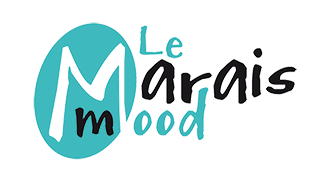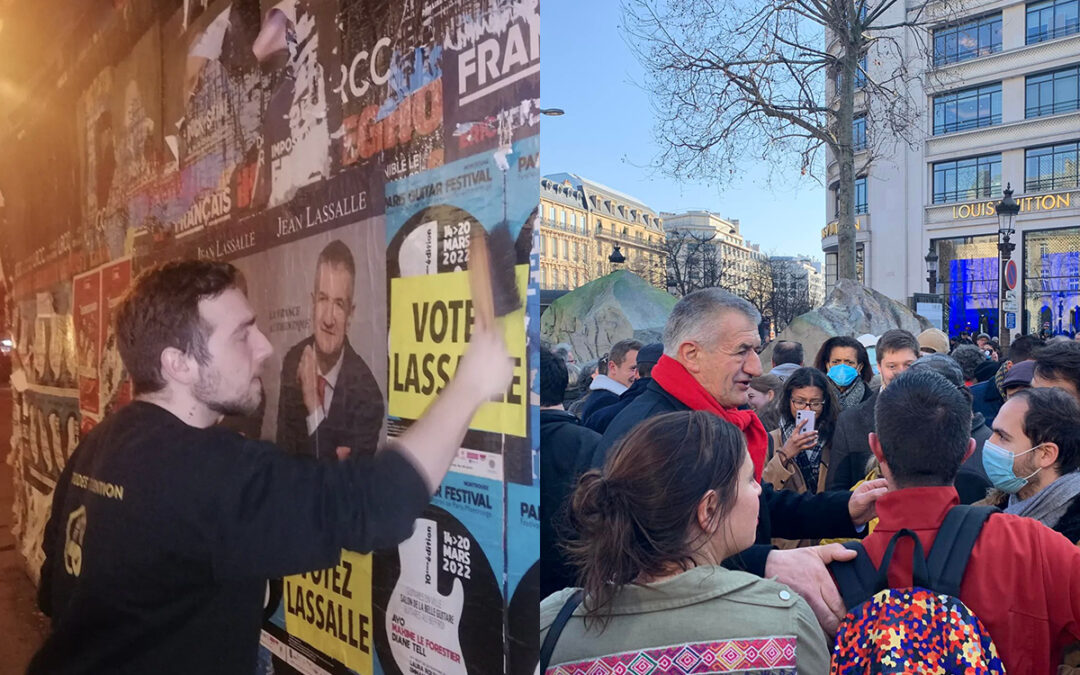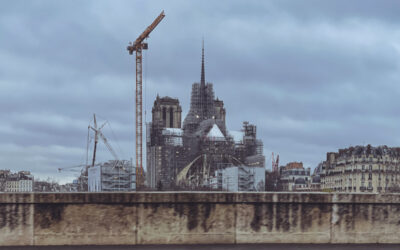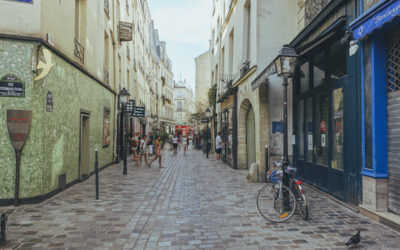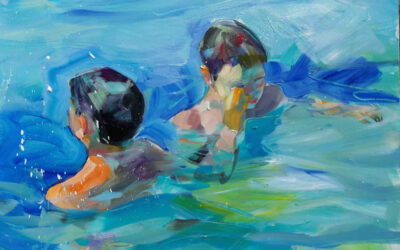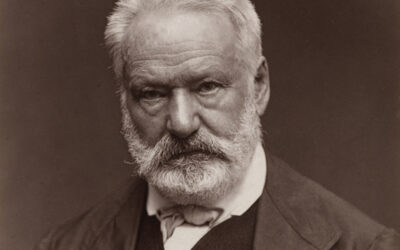Series: before the presidential election, Marais Mood explores motivations young French voters.
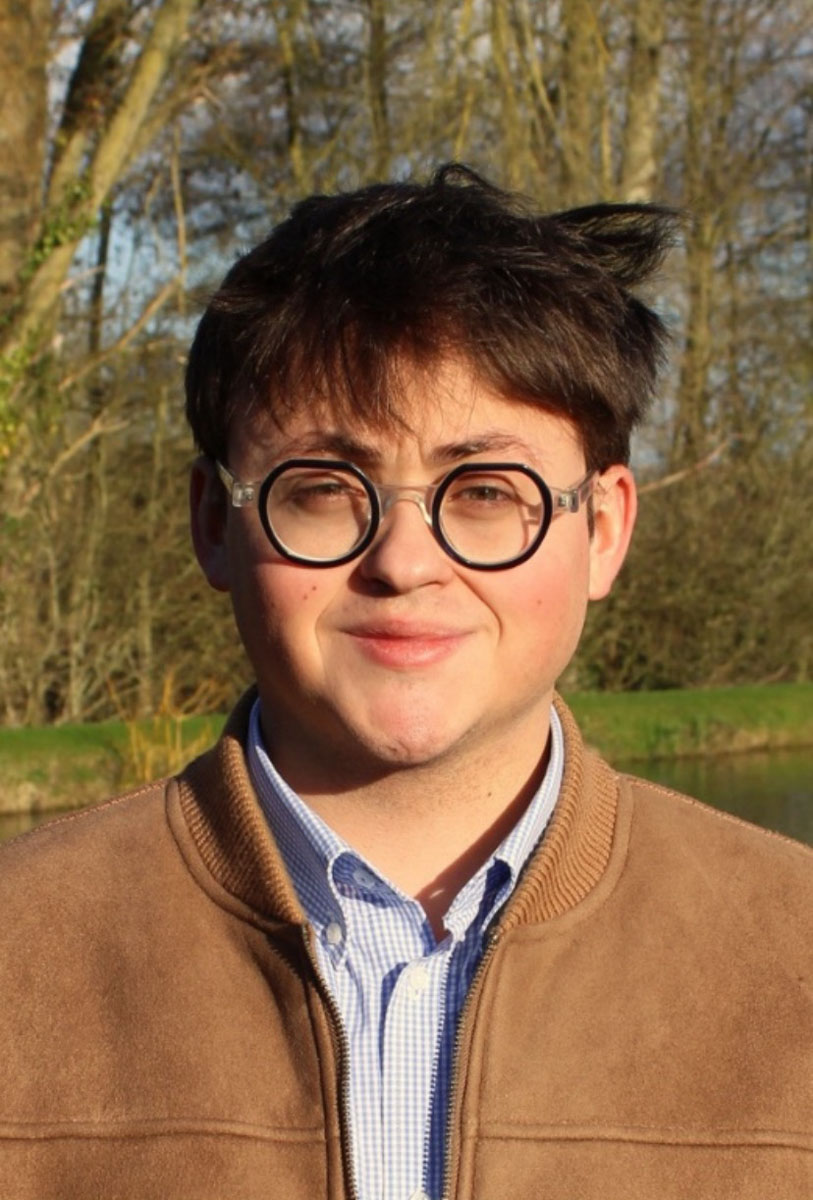
Pierre Louis comes from Normandy, more precisely Assé le Boisne, a small village of 1200 inhabitants in the north of Sarthe. He is currently studying his first year of law in Alençon, and it was the first time he visited Paris!
• How did your interest in politics begin?
Pierre Louis, activist at “Let’s resist!” » : « I became interested in politics at a very young age, as I grew up in an extremely politicized family. With a right-wing father and a frankly left-wing brother, there are always debates of ideas in our house. In final year, I first created a relay antenna for Amnesty International. After my scientific baccalaureate, I read the work Dawn or dusk: Let's resist! by Jean Lassalle, and I had a real revelation. Before reading this, I saw him as a big, funny guy, often presented that way by the media. But since then, I have discovered an individual deeply committed to human rights. Like me, he comes from a small village, and knows to what extent the rural world is poorly served and not very dynamic. »
• The qualities of Jean Lassalle?
« He is the only one who embodies the voice of the rural French people, without limiting himself to that. He does not have a vertical and authoritarian conception of power like Emmanuel Macron. On the contrary, he wants to decentralize decisions and that's what I appreciate. He is a man close to the French. As evidenced by his 2022 Bus Tour: he crisscrossed the whole of France to meet everyone. »
• What is the advantage for young people of voting Lassalle?
« Jean Lassalle wants to establish an RSA for young people under 25, depending on each person's income. He also wants to make APLs more accessible by returning to the reform in 2020, and for the State to be able to better control substandard housing, often rented at high prices to students. »
• His economic program?
« Jean Lassalle wishes to revitalize rural areas by reindustrializing them. He wants to put in place better lines of communication and more transport in the countryside. He wants to revive the research sector, particularly in the social and energy sectors, with the aim of finding alternatives to nuclear power. »
• And about ecology?
« He wants to establish an ecological transition, without establishing a plan to phase out nuclear power. In fact, he especially wants to develop research in clean energies, particularly solar. »
• What about the military service he wants to establish?
« Compulsory civic and military service would take place from September to June, the year just after obtaining the baccalaureate. Young people will then have the choice between traditional military service in the army, or civic service as already exists today. This would allow young people to meet people from other backgrounds, from the four corners of France, and to open up to other realities such as what elderly people experience in EHPADs. In addition, this civic service would make it possible to obtain financing for a driving license. »
• What is his position on NATO?
« Jean Lassalle wants to completely leave NATO, and not just the integrated command, as Eric Zemmour wishes for example. Overall, he wants to regain the sovereignty of France internationally, because it has only followed the United States for too long. »
• In 2006, Jean Lassalle went on a hunger strike to denounce the phenomenon of relocation. Any comments on this subject?
« In my opinion, this strike marks a major event in Jean Lassalle's career. It illustrates his unwavering conviction when it comes to defending his ideas. He put himself in danger, fought during this strike, and he suffered after-effects. He is a man faithful to his ideals and this is how we see that he truly lives for the French people. »
• Something to add ?
« I invite all young people to take an interest in politics, because otherwise, it will be the one who will be interested in them. You must also open yourself up to debate with others as much as possible. Get involved and go vote! »
Text: Morgane Joulin
26.03.22
NEWS, IT'S THIS WAY
Notre-Dame: dismantling of the scaffolding has begun
The gigantic repair project at Notre-Dame de Paris cathedral is coming to an end. The dismantling of the spire scaffolding has begun. It is visible again with, at its top, a rooster which sits in majesty. In ten months, visitors will be able to return to the places whose reopening is planned...
Vote on SUVs: The results in Paris-Centre
Paris voted against SUVs. But only 6% of residents went to the polls. Of the 1 Parisians registered, 374 took part in the ballot. With 532% of votes in favor, the majority expressed their desire to tax these behemoths of the Parisian streets.
For or against SUVs vote on February 4, 2024
In the debate on traffic in Paris, the question of SUVs gives rise to lively discussions. Some advocate a ban because of their environmental impact and their congestion in the city.
NOW ON THE MOOD MARSH
The Marais Jewish quarter in Paris
From the 13th century, the Marais was home to a Jewish community which remained there until its expulsion in the 14th century. Fleeing poverty and persecution, Jews from Eastern countries and those from Alsace settled there in the 19th century. Around rue des rosiers and Place Saint-Paul renamed Pletz…
With the artist Malacarne, we dive into the Big Blue
Why go to the sea when you can find it in the Marais, at the Menouar gallery, rue du Parc-Royal? Here, we dive directly into the Big Blue with the work of Malacarne, a post-impressionist artist of reflection, light and water whose brush caresses the surface of the sea.
Victor Hugo, the writer with a thousand talents
Born in 1802, Victor Hugo became a social writer, a playwright, a poet, a novelist and a romantic designer. Nicknamed the man-ocean then the man-century, he is a political figure and a committed intellectual. He found success with Notre-Dame-de-Paris in 1831 and with Les Misérables in 1862.
